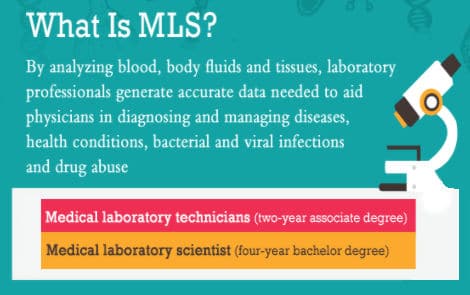There’s been quite a bit of discussion lately about the shortage of medical personnel in many areas. This is both a problem and an opportunity. It’s certainly a problem for the healthcare industry and the patients who depend on it.
On the other hand, it’s an opportunity for people seeking careers that are highly in demand. Let’s see how the health professional vacuum is impacting this field and creating new possibilities for careers.
More Opportunities for Nurses
The nursing shortage is frequently discussed in the media and in any discussions of modern healthcare challenges. One aspect that’s not as well known is that there are now many diverse opportunities for nurses. According to the U.S. Bureau of Labor Statistics Occupational Outlook Handbook, in 2014 there were 2,751,000 Registered Nurses in the United States and in 2016 Registered Nurses earned an average of $68,450 per year. From 2014 through 2024 the number of Nurses is expected to increase by 16% resulting in 439,300 new nursing positions. This is much faster than average growth for all jobs projected. According to the BLS “Registered nurses usually take one of three education paths: a bachelor’s degree in nursing, an associate’s degree in nursing, or a diploma from an approved nursing program. Registered nurses also must be licensed.”
Pharmacy Technicians
There are many choices for working in the medical field. In addition to careers in nursing and as physician’s assistants, there’s also a strong demand for pharmacists, pharmacist’s assistants and pharmacy technicians. Pharmacy technicians help pharmacists dispense prescription medication to customers or health professionals. Once again according to the BLS Occupational Outlook Handbook Pharmacy Technicians earn $30,920 per year, only require a High School Degree, had 372,000 positions in 2014 and are expecting a 9% growth rate by 2024 which is 34,700 new jobs.
All of these are lucrative fields for people seeking healthcare careers. The advantage of becoming a pharmacy technician is that you can get a job that pays well without getting an advanced degree. Getting certified as a pharmacy technician, however, makes it easier to get this type of position.
Pharmacists although they earn considerably more $122,230 in 2016 require a Doctoral or Professional degree and only expect a 3% growth rate (Slower than Average).
Diagnostic Medical Sonographers, Cardiovascular Technologists and Technicians, Including Vascular Technologists
According to the BLS, Diagnostic medical sonographers and cardiovascular technologists and technicians, including vascular technologists, need formal education, such as an associate’s degree or a postsecondary certificate. Many employers also require professional certification. They earned an average of $64,280 per year in 2016, expect a 24% growth rate (much faster than average) which should result in 27,600 new jobs. But considering the salary and the lower educational requirements this is an excellent opportunity. You can even get an online diagnostic medical sonography degree while you work another job.
Medical Lab Services
Another area where there’s a serious shortage of health care personnel is in the area of medical lab services. According to current estimates, the projected growth of laboratory professionals between 2012 and 2020 is 22 percent, much faster than in most industries. The University of Cincinnati has an interesting infographic on Careers in Medical Lab Services. Medical Lab technicians only require an Associates degree while Medical Lab Scientists do require a Bachelor’s Degree.
At the same time, less than half of the professionals needed in this field will be entering it based on current enrollment rates. This means that people entering degree programs such as a Bachelor of Science in Medical Laboratory Science can look forward to rewarding careers.
Physical Therapists
Physical therapists are another type of health care professional greatly in demand right now. These are people who are trained to help patients recover from injuries, surgeries, and chronic illnesses. This profession is projected to grow 34 percent through 2024 (much higher than average). The average salary in 2016 was $85,400 per year and it requires a Doctoral or Professional Degree. One of the benefits of becoming a physical therapist is that you have the option of working freelance and choosing your own hours and there will be 71,800 new job openings.
The shortage of personnel in healthcare is affecting many sectors and professions. When choosing a career, it’s important to consider your interests and aptitudes as well as the amount of study it takes to get the qualifications you need. There’s little doubt, however, that healthcare is one of your best choices if you want to help fill current and future shortages.
You Might Also Like:
- 5 Old-school Careers That Still Bring Success and Fulfillment
- Soaring Professions: 5 Career Fields That Have Secure Futures
- Today’s Most In-Demand Medical Jobs
- 45 Ways You Can Find Success Without a Degree
About the Author: Anica is a professional content and copywriter from San Francisco, California. She loves dogs, the ocean, and anything outdoor-related. She was raised in a big family, so she’s used to putting things to a vote. Also, cartwheels are her specialty. You can connect with Anica here.

